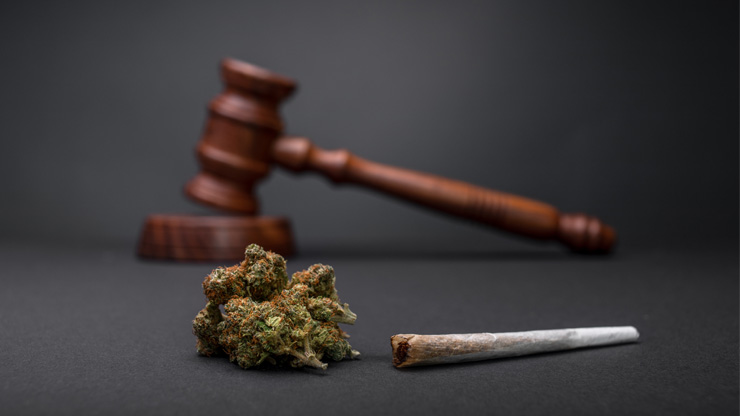
In a landmark ruling, the Illinois Supreme Court has determined that the mere smell of burnt cannabis cannot be used as probable cause for law enforcement to search a vehicle. This decision reflects a significant shift in the legal landscape surrounding cannabis use and law enforcement practices in the state, particularly in light of Illinois’ legalization of recreational cannabis in 2020.
The case arose from a routine traffic stop involving a license plate not being properly secured to the vehicle and the driver going 73 miles per hour in a 70 mph zone. When police made contact they claimed they detected the odor of burnt cannabis emanating from the vehicle. Based solely on this odor of burnt cannabis, the officers conducted a warrantless search of the vehicle, claiming they had probable cause and exigent circumstances. During which police officers discovered approximately one gram of cannabis in the driver’s center console.
What’s of note about the case is what the officer’s did not notice. In its ruling, the trial court indicated that the arresting officer did not observe any signs of impairment or signs indicative of recent cannabis use. The officer also did not observe any paraphernalia, loose or unpackaged cannabis, or the odor of raw cannabis coming from the vehicle. Additionally, the Officer’s examination of the vehicle did not reveal anything that was lit or currently emitting the odor of cannabis from the vehicle. The Officer also agreed that he did not see any cannabis in plain view.
The Defendant in the case filed a motion to suppress evidence and the trial court agreed with the Defendant and granted the motion. The State then appealed the case and the appellate court upheld the decision of the trial court. Afterwards, the State filed a petition for leave to appeal to the Illinois Supreme Court, and the Petition was granted which allowed the case to the heard by the Supreme Court.
In a unanimous decision, the Supreme Court upheld both the trial court and the appellate court’s ruling that the odor of burnt cannabis does not constitute probable cause for a vehicle search. The Court emphasized that the legal landscape around cannabis has changed significantly since legalization. The ruling highlighted several key points:
1. Legalization Context: With the legalization of recreational cannabis, the mere smell of burnt cannabis no longer indicates criminal activity. The Court acknowledged that many individuals legally use cannabis, and relying on this odor could lead to unjustified invasions of privacy.
2. Reasonable Expectations of Privacy: The ruling reinforces the principle that individuals have a reasonable expectation of privacy in their vehicles. The Court stressed that law enforcement must provide more substantial evidence of illegal activity beyond a mere odor to justify a search.
3. Impact on Law Enforcement Practices: The decision is expected to impact how police officers approach traffic stops and searches in Illinois. Officers may need to reassess their reliance on the odor of cannabis as a basis for probable cause, potentially leading to fewer searches and greater scrutiny of search justifications.
This ruling is part of a broader conversation regarding cannabis policy in the United States, particularly as more states move towards legalization. The Illinois Supreme Court’s decision could set a precedent for other jurisdictions, encouraging a more nuanced understanding of cannabis-related laws.
Furthermore, this decision may lead to changes in law enforcement training and policies, promoting a shift away from assumptions based solely on odor and towards more comprehensive assessments of probable cause.
The Illinois Supreme Court’s ruling marks a significant development in the intersection of cannabis legalization and law enforcement practices. By establishing that the odor of burnt cannabis cannot serve as probable cause for vehicle searches, the Court is not only protecting individual rights but also adapting legal standards to reflect contemporary social norms regarding cannabis use. As states across the nation continue to navigate the evolving landscape of cannabis legislation, this decision could play a crucial role in shaping future policies and legal interpretations.

Written by Attorney Jonathan James
Rockford Criminal Defense Attorney